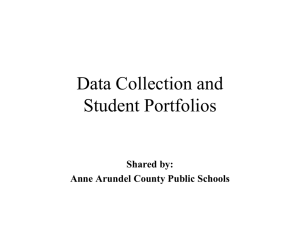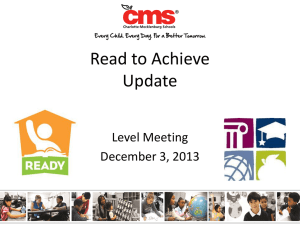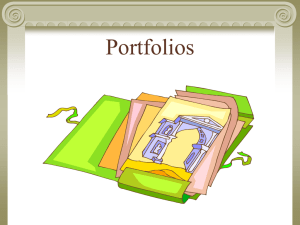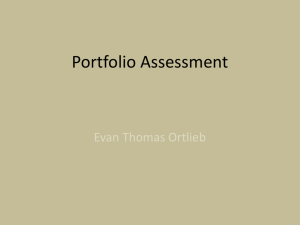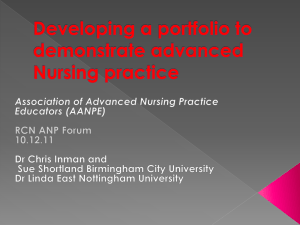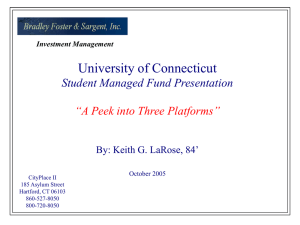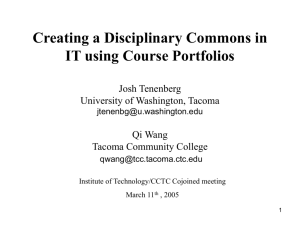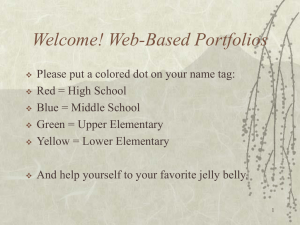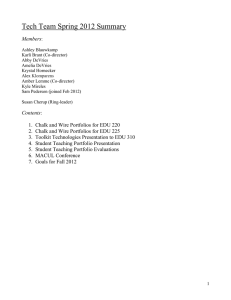2014 Personal Career Portfolios cwex
advertisement
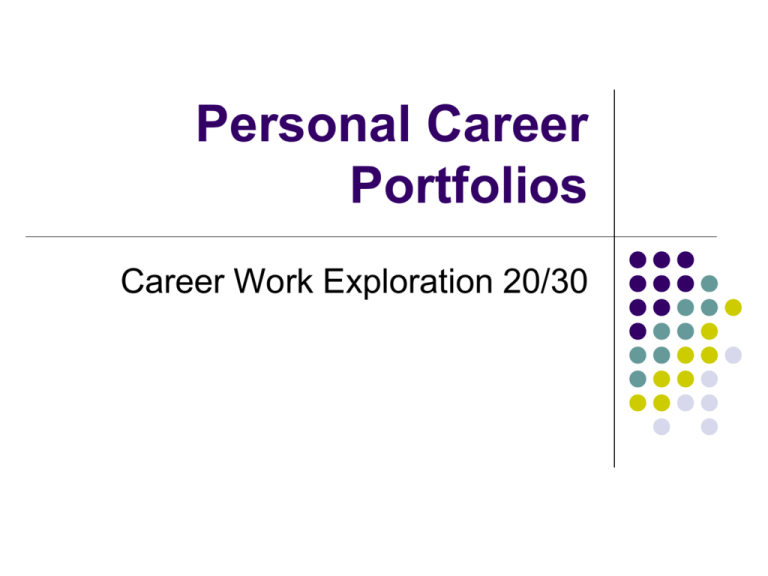
Personal Career Portfolios Career Work Exploration 20/30 What is a Career Portfolio? A career portfolio is a collection of purposefully selected items that you will gather throughout your life to illustrate your skills, values, abilities and interests. Like a wallet: Prized possessions and what is important to you Documentation that describes you and your capabilities Living document and is an on-going project. Your portfolio is limited only by your imagination! Many types of portfolios: Personal Career Portfolios Art or Design Portfolios Broad sampling of the best of an artist’s work. Professional Development Portfolios Demonstrate career development, activities, abilities, and employability of an individual List personal growth plans Employability Skills Portfolios Acquisition of generic employability skills Benefits of a Career Portfolio For the student Contributes to the student’s sense of accomplishment Provides materials to use in preparation for more education and/or job interview Connects home, school and community activities Promotes personal accountability Develops awareness of student’s own knowledge, skills, and values through self-assessment Assess knowledge, skills and goals, Competitive in today’s labour market Identify areas that require further study Why have a career portfolio? Job Opportunities Self-Evaluation Tool Assisting in skill and goal development Career Development Job interview Evidence of skills Transactions Further Education and Training How to use a portfolio Video Steps involved in developing a PCP Collect Select Collect items that tell a story about something important you have done or items that are a permanent record of an accomplishment. Select those that will exhibit your capabilities for a specific reason. You may add or remove items depending on how you plan to use your portfolio and when. Reflect Allows you to ask yourself questions about the learning connected to the portfolio item. Collect Select Reflect Reflective Questions: Reflection is a lifelong process. It helps you look at what you have done, analyze your results, measure your successes and adjust your conduct in the future. You did this naturally when you were a small child discovering how the world worked. What have I learned? What skills did I develop? What have I noticed? What would I do differently? What strengths and weaknesses are shown in this item? How does what I am doing affect my future choices? TIME and EFFORT – take pride in your work! What should you collect? Transcript Attendance record Resume Cover Letter Letter of references Certificates from school An essay, report or article TOKW Pictures – teams, etc. Poetry, quote, book Values Skills Short Term Goals Long Term Goals Abilities Strengths Faith Development Brief description of courses taken Personal interest inventories Membership Extracurricular activities First Aid, Babysitting, WHMIS Trophies, badges, crests Training Hobbies Thank you cards/Letters Self-Assessment results Travel experiences Languages Involvement in sports Involvement in clubs/associations PowerPoint Presentations Training Courses Newspaper articles Log Book How to organize your sections Intro (cover page, table of contents) Employment Section (resume, cover letter, letter of reference, job application, interview) Personal Information (self assessment) Academic Skills (transcript, report card, work) Skills Teamwork Skills Personal Skills Awards and Accomplishments Career Volunteer Others …. Other Blueprint Employability Skills SAMPLES How to create your sheets? Microsoft Publisher Clip art/borders/colours Word Pictures Fonts/White Space/Spacing Wordle Important Dates: What you need: March ________ Binders/Sheet Protectors or website List of items First Deadline Marked June _______ Final Deadline Improved Mark HANDOUT Key things to remember. Rubric Table of Contents – Section (handout) A masterpiece is not created in one day!

